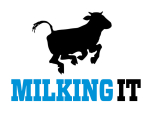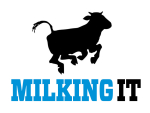The results for the six months to January 31 this year show net profit after tax (NPAT) for the Canterbury-based milk processor of just $4.8 million, an 83% drop from $27.9m for the same period last year. Reported earnings before interest, taxes, depreciation, and amortisation (EBITDA) was $51.5m, down 25% and net debt up 325 to $518.6m.
Chief executive, Grant Watson, says a challenging trading environment continued, with less milk being processed, raw material supply challenges, carbon dioxide shortages and a tight labour market.
"This is on top of high inflationary cost pressures across every part of our business," he says.
"There are no signs of these challenges abating."
The company updated shareholders on its expected full-year performance in mid-March, giving a NPAT guidance range of from $15-25m after its largest customer, A2 Milk, lowered advanced nutrition demand forecasts. Other customers followed suit. And in December last year problems were signaled in implementing its SAP enterprice resource planning (ERP), running core processes in a single system. This caused delays in releasing and shipping ingredients products and flow on effects meant higher inventory levels and costs, which included interest costs. But run rates had returned to more normal levels by the end of the second quarter and a deal signed with a major Chinese customer would lift volumes shipped.
Watson says he was very encouraged by strong performance of the company's ingredients and consumer businesses and the growth of foodservice opportunities, which showed momentum was building to diversify channels, categories and geographies.
Dairyworks turned in a solid half year performance with its market share in cheese growing as consumers bought more affordable products. Cost savings came from not operating its Temuka cheese plant, where manufacturing was costly and Dairyworks' new warehouse and distribution centre was responsible for around $1m in annual savings.
In the foodservice sector limited sales of JOYHANA branded UHT cream started in the first quarter, with volumes expected to ramp up in the second quarter after positive feedback. The brand is a partnership between Synlait and SAVENCIA Group, the world's twelfth largest dairy company. Synlait estimates its UHT line will be 70% used next year as it works with several multinationals to manufacture added value creams and beverages for the New Zealand, Australian and Chinese markets.
Commercial production of advanced nutrition products at its Pokeno plant, south of Auckland, is expected to start in the last quarter of the year after delays in its yet to be announced multinational customer's change from its present source to Synlait.
Re-registration for access to the Chinese market was progressing with audit completion expected in the third quarter and production expected to start in the fourth quarter.
Its forecast base milk price remains at $8.50/kgMS and a further update on performance will be given at an investor day on May 8.


















